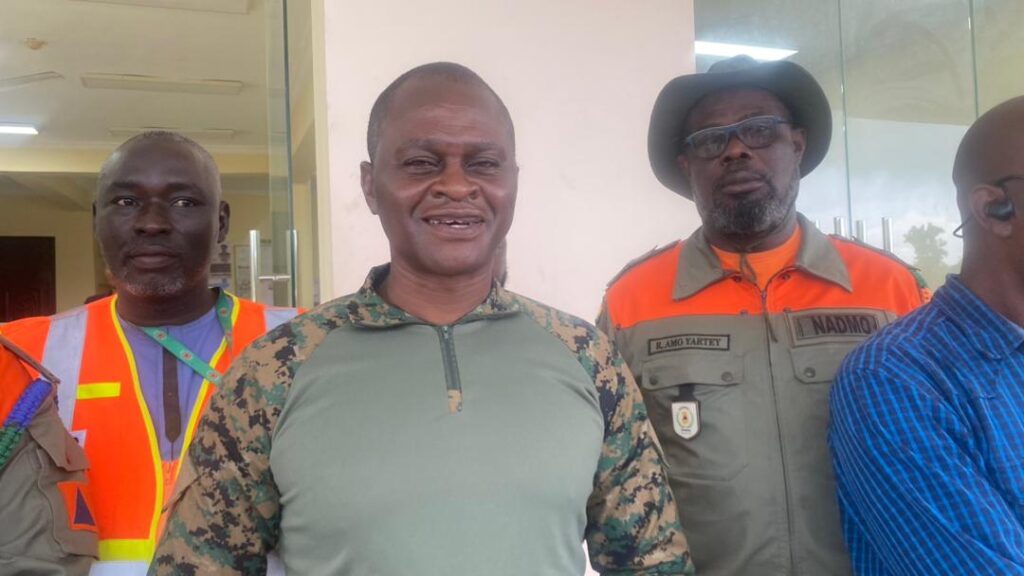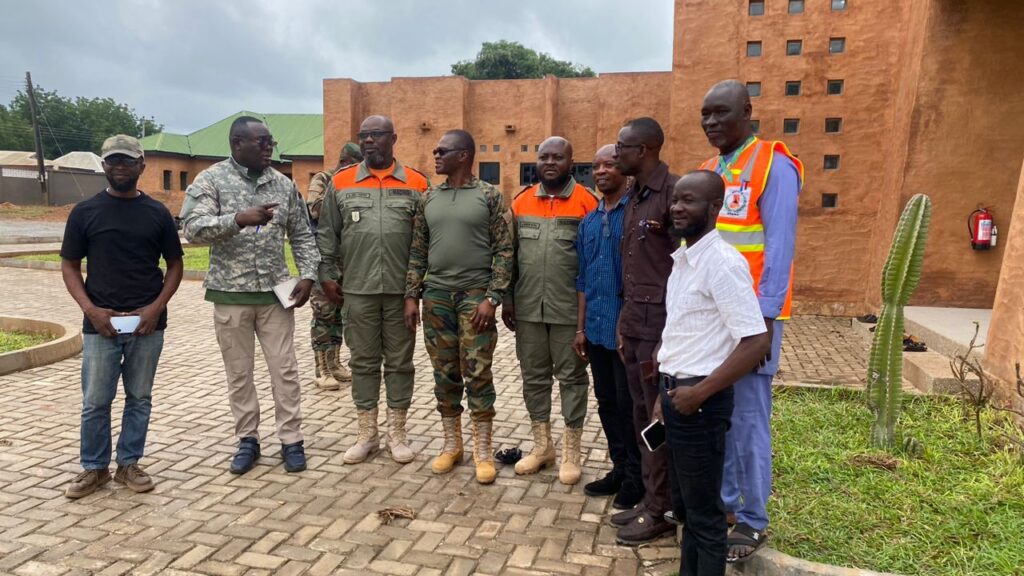The Director General of the National Disaster Management Organisation (NADMO), Major (Rtd.) Dr. Joseph Bikanyi Kuyon, has reaffirmed NADMO’s commitment to leading coordinated, efficient, and impactful disaster responses across the country, particularly in the Savannah Region, where recent conflicts have displaced over 48,000 people.
Dr. Kuyon made these remarks during a media briefing on Wednesday, 3rd September, 2025 after inaugurating the Savannah Regional Disaster Management Board at the Regional Coordinating Council in Damongo.

“My mission is simple,” he stated. “We all know what has happened in this region. It’s important that all of us involved in emergency response put our efforts together to manage the situation swiftly and help restore normalcy.”
Dr. Kuyon explained that although his physical presence in the region came after some initial response efforts, his approach was strategic—focused on resource mobilization and coordination from the national level before arriving to personally assess the situation on the ground.
“I didn’t rush into the scene myself. I placed the operations team at the forefront while I coordinated the needed logistics and support from Accra,” he noted. “Now that initial relief efforts are underway, it’s critical for me, as the leader of the organisation, to come and see things for myself so I can make informed decisions going forward.”

The NADMO boss highlighted the agency’s role as the lead institution in emergency response and emphasized the importance of inter-agency coordination to maximize the impact of relief efforts.
So far, NADMO has dispatched essential supplies including food items, blankets, detergents, and other relief materials to support the displaced population.
“The support given so far has been substantial,” Dr. Kuyon stated. “But this doesn’t mark the end. As long as the situation persists, NADMO will continue to coordinate resources—from government, non-governmental organizations, and international partners—to manage the emergency until full reintegration is achieved and peace is restored.”
He expressed gratitude to both local and international partners who have joined NADMO’s efforts. Key collaborators include the Ghana Armed Forces, Ministry of the Interior, National Security, and several international organizations.
“We’ve had immense support from the UNHCR, UNICEF, Red Cross, NORTHCODE, and Child Relief,” he said. “Red Cross was the first to assist with tents and emergency shelter. UNHCR and UNICEF have also stepped in with critical support including medical supplies.”
Dr. Kuyon further disclosed that the UN Interagency Working Group, which coordinates efforts across UN agencies in Ghana, is actively engaged in planning and resource mobilization. A technical committee from the group is expected to visit the affected areas within the week.
In response to concerns about the proper use of relief materials, Dr. Kuyon assured the public that mechanisms are in place to ensure accountability.
“That’s precisely why I inaugurated the Regional Disaster Management Committee,” he explained. “The committee brings together experts from various sectors to coordinate response efforts, avoid duplication, and ensure that all available resources are used efficiently and for their intended purposes.”
He concluded by urging continued collaboration among stakeholders and emphasized that NADMO remains dedicated to working hand-in-hand with traditional authorities, opinion leaders, and affected communities to restore peace and normalcy to the region.
The recent land dispute in the Sawla-Tuna-Kalba District and other parts of the savannah region has resulted in a major humanitarian crisis, with thousands displaced.
Source: Padfm.com.gh/Kumatey Gorden/0243531604

















